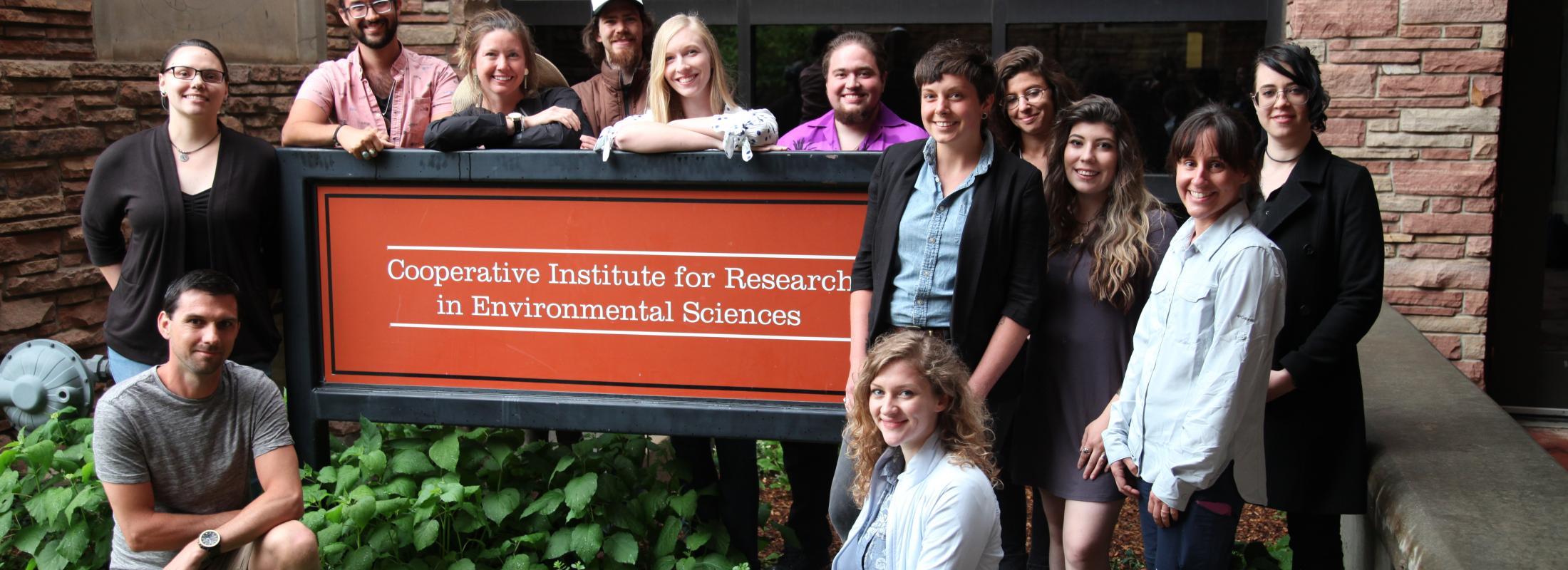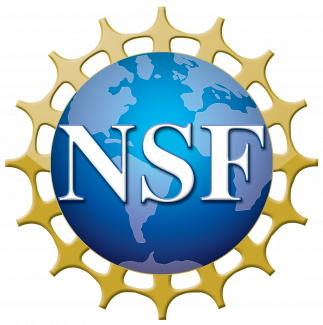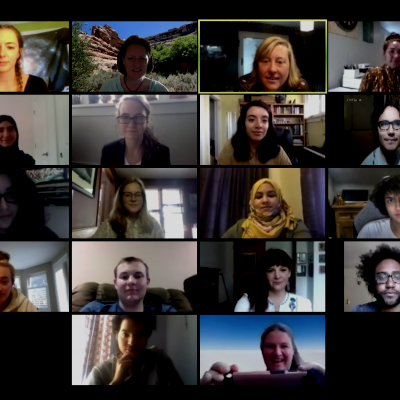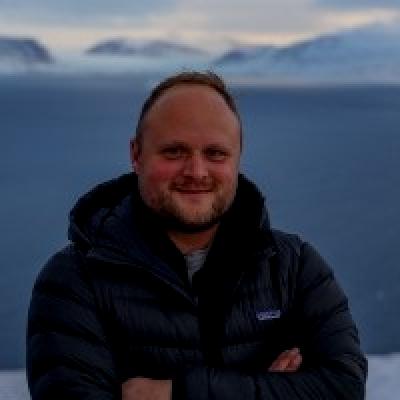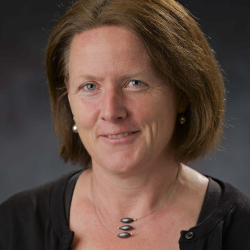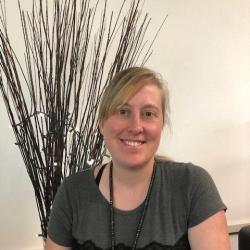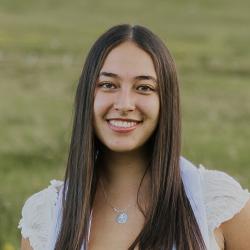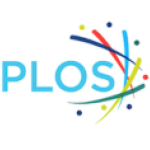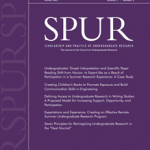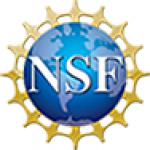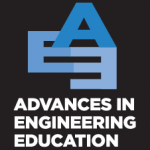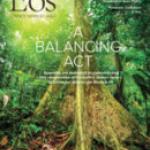The Research Experience for Community College Students (RECCS) is a paid summer research experience program open to all Colorado (and CO's surrounding states) community college students. The goal of RECCS is to give community college students an authentic research experience at CU Boulder, ranked #1 in the world for geosciences. The program allows students to explore environmental or geosciences and gain the confidence to transition to a four-year program in the STEM (Science Technology Engineering Math) disciplines.
Ten - fourteen students receive a weekly stipend of $650 to conduct field- or lab-based independent research over a nine-week period in the summer (June 3rd - August 2nd, 2024) while working with a team of scientists. Students learn basic research and communication skills, and they present their research at a local student science symposium.
Check out why you should apply to RECCS!
Applications for summer 2024 are now closed. Interested students can sign up on our 2025 Interest form here. Applications for the summer 2025 program will open up in November.
- Please read our FAQ's before applying. All of our application and recommendation questions are listed here.
- Students must be attendng Colorado, Nebraska, Kansas, New Mexico, or Wyoming community colleges and U.S. Citizens or Green Card holders to apply.
- A complete application packet includes the online application form, unofficial transcripts, and a completed recommendation form by a college administrator or instructor.
- To be added to an email list to receive reminders about the deadline and information about info. sessions please add your name and email to this short survey.
Students from rural areas are particularly encouraged to apply. We seek applicants from a wide range of experiences, perspectives, and backgrounds.
Click on a question below to see answers to Frequently Asked Questions about the RECCs Program.
Applicants must:
- Be a US Citizen or a Permanent Resident
- Attending a Colorado, Kansas, Nebraska, New Mexico, or Wyoming Community College (can graduate in the spring semester and plan to attend a 4-year college)
- Have completed at least two science classes. College algebra is also recommended.
- Have a minimum grade point average of 3.0 or provide a reasonable explanation for a lower GPA
- Not have a BA or BS even in a completely unrelated discipline
- Be willing to make a full-time commitment for 9 weeks (40 hours per week)
Applications for the 2024 program are now closed, but interested students can sign up on our 2025 Interest form here. Applications for the summer 2025 program will open up in November and close in February.
- To receive application deadline reminders, tips for applying, and other updates, fill out this short survey.
- You will receive an email when we have received your complete application packet
- Applicants will be notified of acceptance or dismissal in early March.
- All communications will be via email – check your emails regularly
You will be asked for your contact information, academic information, background information, an unofficial transcript, and your answers to the following short-answer questions:
- Please briefly explain how and why you feel the RECCS program will benefit you and have a profound impact on your future professional life (200 words or less).
- Research involves the following skills (among others): problem solving (eg. including critical thinking, thinking creatively, adapting to change); collaboration (eg. strong communication, working in a group); learning from feedback; self-motivation (eg. taking initiative, pursuing a passion, working independently) . Please discuss examples of how your previous experiences (research, work, academic, extra-curricular, service, community, personal) have provided you with at least 2-3 of these skills that make you a good candidate for the RECCS Program. (200 words or less)
- Research can be a challenging process that often does not go the way we expect it to, and requires perseverance and determination. Tell us about an experience where you faced adversity or failure along your path towards your desired career. How did you persevere and what did you learn from the experience? (200 words or less)
- Please tell us how and/or why you became interested in science. (200 words or less)
- In reflecting on your own identities and lived experiences, what have you learned that will help you contribute to an inclusive and supportive environment in the RECCS program and beyond? Please provide specific examples. (200 words or less)
- Please tell us about what area of the Earth and environmental sciences you are interested in studying and why (chemical, physical, biological, geological, atmospheric, ecological, air quality & public health, data science, are some examples).
- Is there anything else you would like to share with us?
Once you begin the application you must answer all questions before closing the form for your answers to be saved. We suggest you write your responses to the background questions in a separate Word document, and then copy and paste them into the application when you are ready to complete the whole application in one sitting. It is very important to be thoughtful in writing your responses to provide a window into yourself and your motivations for applying to this program.
- Watch a video for application advice.
An instructor or administrator at your community college who is familiar with your academic background.
This instructor or administrator must fill out this short 5-minute recommendation form by the application deadline.
Note that we no longer require a recommendation letter, but asking for someone to recommend you can still be tricky.
- View a video on how to get a strong recommendation.
You may provide an optional letter of recommendation if you wish and have them email it to reccs@colorado.edu.
- How do you know the student you are recommending?
- How would you rate… (excellent, mediocre, poor, N/A)
- The student’s quality of work in completing assignments/projects?
- The student’s level of motivation?
- The student’s aptitude to be self-directed?
- The student’s potential to problem-solve?
- How does this student compare to other students you have taught in terms of academic skills? (Top 10%, Mid-range (11-50%), lowest 50%, N/A)
- What stands out to you about this student (200 words or less)?
- Is there anything else you would like to share with us about this student (200 words or less)?
Please upload your unofficial transcript(s) from your community college to the online application. Screenshots are accepted. If you have issues with uploading, please email it to reccs@colorado.edu.
All applicants who are accepted into the program will need to provide an official transcript from their current community college.
- You will receive a weekly stipend of $650 per week for a total of $5400
- You will be paid bi-weekly
- Commuters will receive a weekly stipend of $80 to cover fuel costs
- Students who live more than 50 miles from campus will receive free on-campus housing.
We seek students that are passionate about science, have intellectual curiosity, are hard-working and responsible, flexible, proactive communicators, and can work as part of a team. We expect you to conduct an independent research project, guided by a mentor scientist - you will not simply be an assistant for a research group. You do not need previous research experience– we will teach you the necessary skills. Those students that choose a field project must be physically fit and flexible in their schedules, as field conditions can dictate a change in plans. We will expect you to work 40 hours per week with weekend work a possible option. You will participate in program evaluations throughout the summer. At the end of the program, you will present your results at a poster session for student researchers in Boulder and give a short oral presentation at CIRES.
You will also be expected to perform some pre-program work, such as connecting with your mentor and reading papers about their research, completing software tutorials, and connecting with RECCS program staff to complete necessary paperwork, etc.
While mentored and guided by a scientist and the RECCS project team, you will engage in your own small research project. You will collect data, analyze it and present your results both in an oral presentation and in a poster format. Throughout the research experience, you will receive support and guidance for all steps, but you are in charge of your project. You will also participate in weekly professional development seminars with other members of the cohort.
If you are selected into the program, you will choose and rank your top three areas of interest and explain why you are interested in them.
We will identify which scientists can serve as your mentor based on your interests and skills and send them your application. The scientists will decide which students most closely match their research interests. To find out more about past mentors you can view their bios and research interests.
Please note that while we will try our best to match students who are interested in fieldwork with field projects, we cannot guarantee this, and even field projects include a substantial amount of non-field work.
Check out the short elevator speeches of past student researchers or their full presentations.
- Watch this video to learn what mentors are looking for in their mentees.
Once a week, all student researchers will meet for a required group check-in with the program manager and each other. Following the check-in, there will be a weekly Scientific Communication Seminar that will guide students through the process of constructing a poster and an oral presentation. It also includes professional development training on preparing a CV, networking, applying to a four-year college, applying to graduate school, careers in environmental and geosciences, etc.
Orientation Week:
The internship starts with a week of orientation, introductions, and team-building. Students will get an introduction to research at CU, take an Introduction to Programming training if applicable, and meet with their mentors.
Weeks 2-8:
Individual Research: For the duration of the summer research experience, each student will be paired with a research mentor or team to work on an individual project. Students will be closely mentored by members of the host research group for their individual research projects.
Scientific Communication & Professional Development Seminars: Once a week the cohort will spend time together learning various research-related skills – communication, science writing, science presentations – as well as career skills like resume writing and interview techniques. Students will also have time to read, write, analyze their data, and work on their individual projects.
Final Week:
Students will prepare for and present results from their research project in a poster session for summer student researchers from several local summer research internships. Students will also present their research results in a short oral presentation at CIRES.
Yes, housing in the CU off-campus apartments may be available for free to those commuting more than 50 miles one-way or who do not have a car. You will have your own room and share a bathroom and kitchen with at least one other student.
We accept 10-14 student researchers each summer for this competitive program.
Email: reccs@colorado.edu or call: 303-735-1750.
Applications for the 2024 program are now closed, but interested students can sign up on our 2025 Interest form here. Applications for the summer 2025 program will open up in November and close in February.
- Full applications are due at the start of February.
- To receive application deadline reminders, tips for applying, and other updates, fill out this short survey.
- Applicants will be notified of acceptance or dismissal in early March.
- All communications will be via email – check your emails regularly
The RECCS Summer Research Program is open to all Colorado, Nebraska, Kansas, New Mexico, and Wyoming community college students. The program runs from June 3rd - August 2nd. We encourage applications from students currently living in, or who grew up in rural communities. We seek applicants from a wide range of experiences, perspectives, and backgrounds.
Before starting the application read through the Frequently Asked Questions tab for important information about the program and advice on completing this application. Also, check out our webinar and resources about REU programs and application tips for RECCS and other REU programs here.
To be eligible to apply you must:
- Be a US Citizen or a Permanent Resident
- Attend a Colorado, Nebraska, Kansas, Wyoming, or New Mexico community college (can graduate in the spring semester and plan to attend a 4-year college)
- Have completed a minimum of two science classes, and college algebra is encouraged.
- Have a minimum grade point average of 3.0 or have a reasonable explanation if below.
- Not have a BA or BS even in a completely unrelated discipline
- Be willing to make a full-time commitment for 9 weeks (40 hours per week)
A complete application includes the following:
- Completed online application form
- An unofficial transcript (uploaded during the online application process).
- Accepted students will be asked to provide an official transcript.
- Mandatory online Recommendation form completed by an instructor or administrator at your community college.
Thank you for supporting your students in applying for RECCS!
A Recommendation Form from a community college educator or administrator is required for each applicant to the Research Experience for Community College Students (RECCS) Program at the University of Colorado.
Please fill out a recommendation form.
***********************************************************************************
We value the work and effort that you spend with students, therefore we will no longer be requiring recommendation letters for our semi-finalists. We have added a couple of open-ended short-answer questions to this recommendation form for you to provide additional comments about the student you are recommending.
What questions will I be asked?
- How do you know the student you are recommending?
- How would you rate… (excellent, mediocre, poor, N/A)
- The student’s quality of work in completing assignments/projects?
- The student’s level of motivation?
- The student’s aptitude to be self-directed?
- The student’s potential to problem-solve?
- How does this student compare to other students you have taught in terms of academic skills? (Top 10%, Mid-range (11-50%), lowest 50%, N/A)
- What stands out to you about this student (200 words or less)?
- Is there anything else you would like to share with us about this student (200 words or less)?
You are welcome to submit an optional letter of recommendation if you wish. We find it helpful when the letter addresses items such as:
- How long have you known the applicant and in what capacity?
- The quality of the candidate’s academic or creative achievements, including areas not reflected on the official transcripts.
- The applicant’s potential strengths in a collaborative research environment.
- Those aspects of the applicant’s personality or character that would help them to succeed in this program.
- The ability of the applicant to make use of this opportunity in preparation to attend a four-year institution.
- The applicant’s level of interest in geoscience.
- Anything else we should know?
The Letter of Recommendation can be emailed as a pdf to reccs@colorado.edu.
Interested in mentoring?
To submit a project for the summer 2024 Program, please fill out this survey or email reccs@colorado.edu.
Mentors are the heart and soul of the RECCS program. They volunteer their time to support the next generation of scientists, teaching research skills, connecting their mentees with the field, inspiring them in their careers, and building confidence. In the process, they gain mentoring skills and (hopefully) inspiration from their interactions with a student from a community college, often from a non-traditional background.
Typically we recruit mentors in December & January for the following summer. If you are interested in mentoring, please send a brief description of your proposed project to reccs@colorado.edu by February 15th.
Who can mentor?
RECCS mentors come from all parts of CIRES, CU, NOAA, USGS, and other institutions. Many are research scientists or faculty, but others are postdocs or graduate students. We encourage and support mentoring teams, where several mentors work together to support a single student, sharing the workload and ensuring the student is supported across vacations, work travel, hybrid work schedules, and other responsibilities. We do ask that someone on the mentoring team is available for most of the summer, especially during the critical first and final two-week blocks. Learning to be a research scientist is a steep learning curve, and extra support is often needed to ramp up and wrap up. No previous mentoring experience is necessary.
What is required?
Before the summer, mentors will define a research project for their mentee (see below). Mentors will be matched with mentees by the RECCS team based on the mentee’s interests and skills and will have the opportunity to adapt their project knowing who they will work with. All mentors will be provided with training and resources to support them in their role as a mentor and will participate in mentor meetings with the RECCS team.
When the students arrive, mentors will work with their mentee on the day-to-day work of completing a research assignment. The RECCS program provides structure and training that guides the students toward their final deliverables of posters, talks, and conference abstracts, as well as professional development and cohort-building activities, while the mentor (or mentor team) supports the research component. Mentors typically work with their mentee for 3-5 hours a week, often making themselves available for questions on most days. Successful mentorships also connect the RECCS student with other students and researchers in their labs, who may also be able to provide guidance and support. RECCS students are paid for their participation in the program and are expected to work for 40 hours a week, with RECCS activities occupying most of the first week, and Wednesdays throughout the summer. RECCS team members will stay in touch with you as mentors throughout the summer to support you with any challenges that arise.
Beyond the summer, while there is no expectation of ongoing support, many mentors write recommendation letters for their students when they apply for graduate school and fellowship opportunities. With our students being Colorado-based, some mentors have also chosen to continue to support their mentees in doing research throughout the school year.
What makes a good project?
Mentors identify a wide range of projects for RECCS interns. Some involve fieldwork and data collection, while others focus on existing data sets. Some projects are a small part of a mentor’s research, while others tackle interesting questions mentors may not have had time for. Whichever you choose, a great REU project is one that a) feels meaningful, b) is appropriately scoped for the program timeframe (experience suggests this is something that could be done by an experienced researcher in about 1-2 weeks, c) provides early success (e.g. being able to make measurements or an interesting plot early in the summer) and d) offers some alternate end- or extension- options. Projects should be authentic (i.e. you don’t need to know the outcome – and projects that don’t work out are a normal part of science), and offer the student a chance to feel ownership. We ask that our mentors identify projects that their students might work on (though having some flexibility to align with students’ interests helps develop a sense of ownership). A great research project can likely provide some results within about 6 weeks of student work and would be suitable for them to present in the student section of a conference.
Our students are community college students, so do not yet have advanced coursework or the exposure to research that a senior undergrad or graduate student might have, however usually have a great work ethic, wide-ranging skills developed outside of class, and amazing ability to learn fast and deliver awesome work. In most cases, RECCS students can present their research in the student section of a scientific conference – i.e. these are real projects and not just an opportunity for assistance in the lab. You can see some of previous year’s research here.
What else should I know?
Inclusion matters to us
RECCS aims to create a supportive and inclusive environment where students are encouraged to bring their full selves to their research. We believe strongly that the best research occurs when people can bring their experiences and identities to their work, are supported in their environment, and are part of caring teams. We actively work to propagate these ideals and are proud that our mentors work with us to ensure that RECCS interns have a great introduction to the earth and environmental sciences.
We might be a good broadening participation addition to your next grant
The RECCS program is funded by the National Science Foundation, and your student will receive a good stipend and living/transportation costs at no cost to you. That said, we are always happy to work with scientists who would like to write support for a RECCS intern into your grants. If funded, we will work with you to identify a great student to work on your project during the summer, and they will be well supported by the RECCS program, freeing you from the work of recruitment, logistics, and professional development that taking on undergraduates often entails. Our focus on increasing the diversity of the geosciences, as well as a 10+ year track record, makes funding a RECCS intern an excellent addition to your broadening participation efforts.
I’m in – what should I do next?
Thank you for being willing to inspire and mentor a RECCS student! Please drop us an email at reccs@colorado.edu and we will be in touch.
